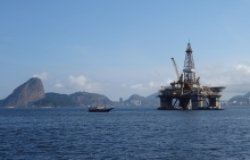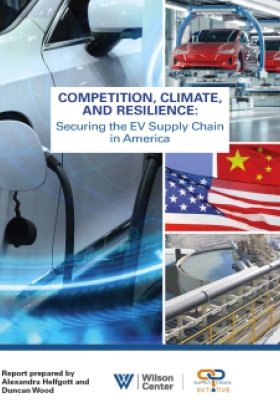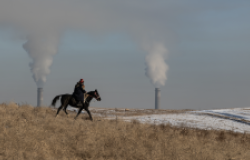Four Takeaways from the Global Water Security Intelligence Assessment
The just-released unclassified National Intelligence Council report on water and security is a positive contribution to understanding these complex and interconnected ecological, social, economic, and political issues around water.

The just-released unclassified National Intelligence Council (NIC) report on water and security is a positive contribution to understanding the complex and interconnected ecological, social, economic, and political issues around water.
Although the report was issued by the NIC, behind the assessment are many months of extensive consultations across government and with outside scholars and practitioners from myriad sectors. By definition, the authors adopt a U.S. security perspective. But the assessment’s utility should extend far beyond the security sector given the trends it identifies and the analysis it advances. Indeed, Secretary Hillary Clinton, who requested the assessment, launched it during her World Water Day speech last week.
Schuyler Null, on ECSP's blog New Security Beat, hit the report highlights earlier this week, but here are a few broader takeaways from the report, which will quickly become a common point of reference in the water and security community:
Water cannot be viewed in isolation from other key issues such as energy and food. The report emphasizes that water, energy, and food are interconnected and intertwined, and that these connections can help explain how water and security linkages are manifested in other sectors. This finding implies that single-sector approaches present potential shortcomings with very real security implications. Together, these "human security" concerns constitute priorities for traditional security institutions in ways that cannot be easily dismissed.
Water security impacts national security. While conflict and other traditional concerns of the security community are featured in the report as expected, the assessment also makes clear that trends in water and sanitation, or water and food, or water and energy, are fundamental challenges that rise to the level of national security concerns. The presence of organized violence is not necessary to make these issues critical to the stability and security of a group, community, country or region.
In essence, the intelligence community recognizes that water doesn’t need to “bleed to lead"; instead, there are a number of security concerns that are not connected explicitly to organized violence.
The future may not look like the past regarding water and conflict between states. Scholarship by Aaron Wolf and colleagues provides an evidence-based antidote to the appealing “water wars” frame that dominates newspaper headlines and political speeches. The NIC assessment recognizes this research by affirming that states have not fought over water, and that instead they have cooperated even in the face of shared--and at times scarce--resources. Yet the assessment says the future may not look like the past 10 years from now, when increased demand will test the institutional arrangements for sharing water and resolving water disputes.
The policy conclusion (which the NIC cannot recommend by law but should be drawn by policymakers) is: invest much more energy and resources in the development of transboundary water institutions and dispute resolution mechanisms now, rather than in 10 years.
Governments can occasionally look long-term. The U.S. government and its security institutions can carve out enough time to look seriously at long-term challenges. Such examples are few and far between. But the NIC’s other well-known product, the Global Trends report, which looks decades ahead every four years, is another notable exception.
The true challenge now is whether public and private sector actors across the development, diplomacy, and defense arenas will proactively act on these insights. The intelligence community cannot make policy recommendations; their products are diagnostic and analytical, not policy prescriptive. It is up to the “consumers” of this intelligence assessment to act.
Photo Credit: “UN Peacekeepers Distribute Water and Food in Haiti,” courtesy of United Nations Photo.
About the Author

Geoffrey D. Dabelko, PhD
Professor and Associate Dean, George V. Voinovich School of Leadership and Public Affairs, Ohio University; Associate Senior Fellow, Environment of Peace Initiative, Stockholm International Peace Research Institute

Environmental Change and Security Program
The Environmental Change and Security Program (ECSP) explores the connections between environmental change, health, and population dynamics and their links to conflict, human insecurity, and foreign policy. Read more











